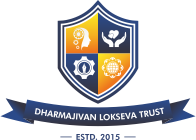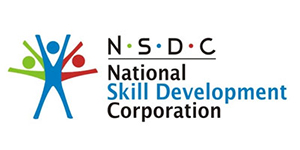The National Skill Development Corporation India (NSDC) was setup as a one of its kind, Public Private Partnership Company with the primary mandate of catalysing the skills landscape in India. NSDC is a unique model created with a well thought through underlying philosophy based on the following pillars:
-
- 1. Create: Proactively catalyse creation of large, quality vocational training institutions.
2. Fund: Reduce risk by providing patient capital. Including grants and equity.
3. Enable: the creation and sustainability of support systems required for skill development. This includes the Industry led Sector Skill Councils.
- 1. Create: Proactively catalyse creation of large, quality vocational training institutions.
The main objectives of the NSDC are to:
- Upgrade skills to international standards through significant industry involvement and develop necessary frameworks for standards, curriculum and quality assurance
- Enhance, support and coordinate private sector initiatives for skill development through appropriate Public-Private Partnership (PPP) models; strive for significant operational and financial involvement from the private sector
- Play the role of a “market-maker” by bringing financing, particularly in sectors where market mechanisms are ineffective or missing
- Prioritize initiatives that can have a multiplier or catalytic effect as opposed to one-off impact.
Partnerships
NSDC operates through partnerships with multiple stakeholders in catalysing and evolving the skilling ecosystem.
- Private Sector – Areas of partnerships include awareness building, capacity creation, loan financing, creation and operations of Sector Skill Councils, assessment leading to certification, employment generation, Corporate Social Responsibility, World Skills competitions and participation in Special Initiatives like Udaan focused on J&K.
- International Engagement – Investments, technical assistance, transnational standards, overseas jobs and other areas.
- Central Ministries – Participation in flagship programmes like Make in India, Swachh Bharat, Pradhan Mantri Jan Dhan Yojana, Smart City, Digital India and Namami Ganga, among many others.
- State Governments – Development of programs and schemes, alignment to NSQF and capacity building, operationalization of program, capacity building efforts among others.
- University/School systems – Vocationalisation of education through specific training programs, evolution of credit framework, entrepreneur development, etc.
- Non-profit organizations – Capacity building of marginalized and special groups, development of livelihood, self-employment and entrepreneurship programs.
- Innovation – Support to early-stage social entrepreneurs working on innovative business models to address gaps in the skilling ecosystem, including programs for persons with disability.
Achievements
- Over 5.2 million students trained
- 235 private sector partnerships for training and capacity building, each to train at least 50,000 persons over a 10-year period.
- 38 Sector Skill Councils (SSC) approved in services, manufacturing, agriculture & allied services, and informal sectors. Sectors include 19 of 20 high priority sectors identified by the Government and 25 of the sectors under Make in India initiative.
- 1386 Qualification Packs with 6,744 unique National Occupational Standards (NOS). These have been validated by over 1000 companies.
- Vocational training introduced in 10 States, covering 2400+ schools, 2 Boards, benefitting over 2.5 lakh students. Curriculum based on National Occupational Standards (NOS) and SSC certification. NSDC is working with 21 universities, Community Colleges under UGC/AICTE for alignment of education and training to NSQF.
- Designated implementation agency for the largest voucher-based skill development program, Pradhan Mantri Kaushal Vikas Yojana.
- Skill Development Management System (SDMS) with 1400 training partners, 28179 training centres, 16479 trainers, 20 Job portals, 77 assessment agencies and 4983 empanelled assessors. Hosting infrastructure certified by ISO 20000/27000 supported by dedicated personnel.


0 Comment